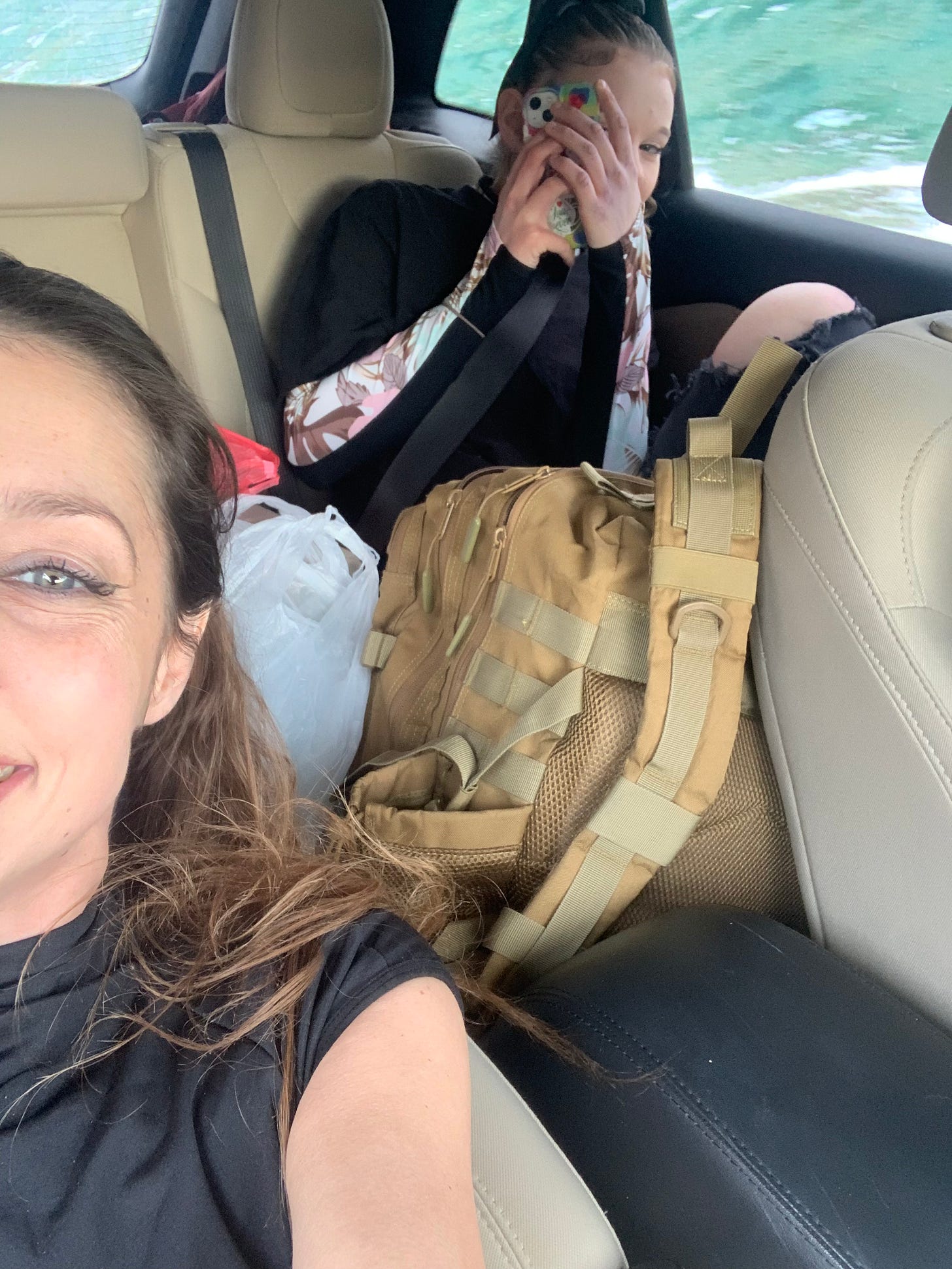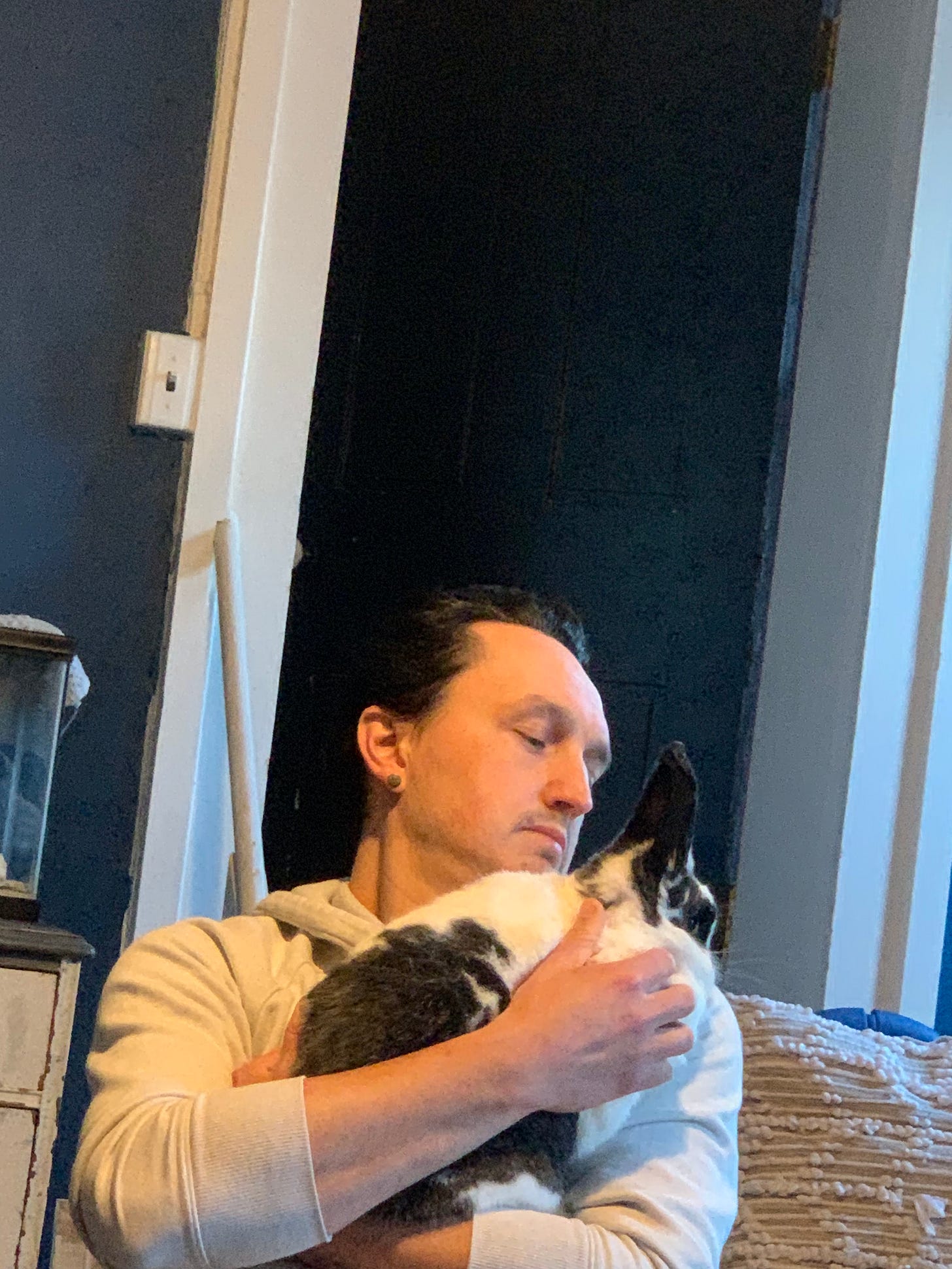This is a Part Three…
A continuation of yesterday and this week’s varied work.
Maybe it stands alone without the connective threads?
If you need a scholarship? Just ask!
Word Nerds who give even just $5 a month help make that possible.
I truly need your support, use your support, cherish your support, and won’t let it go to waste.
Want to change up the pace? You can read some of a fiction novel I shared here as thanks.
Want to read some novellas? Here are some on Kindle (though I can send to anyone who needs the help). There are even more than you see listed here, so reach out if you’re in a reading mood!
Want to read on?
Shutting up now…
But one last thank you for the road: THANK YOU!
I don’t want you to feel bad.
But I do want you to read this.
It’s hard to talk about the differences between mostly-healthy people and always-sick people without making someone else feel bad. But I started writing about the differences between how I “experience time” on an ordinary working weekday compared to my partner and teenager… and realized how rarely I write candidly about this.
If you like looking at things systematically in order to have empathy (not sympathy) for others, and to share that for education on social media (really the best thing we can do with this information since we can’t change it and shouldn’t feel shame or guilt), ponder this:
If I want to make a phone call to schedule a CT scan, I need to use a caption app because of my profound hearing loss (something that’s actually rather common in CF patients, by the way, but also runs in my family).
Often, this takes longer, because I’m hung up on more frequently. I also can’t multitask when I make these calls, since my eyes must stay on the screen. So if I don’t reach a human before it’s time to drive to work, I can’t call on my way to dance- for example - because I can’t drive and safely read a caption app device.
That example alone shows how many little minutes and pieces of minutiae can go into an everyday task for myself taking longer than my abled partner, for example.
He can eat as he’s doing things and not worry about DIOS. He can eat late at night and just sleep through whatever happens digestively until morning-ish. And his mornings don’t require a full body assessment to figure out if an organ needs medical attention or if he might be limping while he’s rushing to get ready. Sure, he’s old (ancient)… but he can brush his teeth and shower and just… go to work.
It’s not about bootstraps, to be clear.
My boots be strapped.
No, it’s about literal unstoppable things like “throwing up in the roadside trash can on your way home from work” or “being stuck in the rest room accruing physical rips again [yes, you read that right] or losing blood because you ate the crust on the gluten free pizza the night before”.
How dare we want calories. How dare we eat dinner when we get home from work late. How dare we work late. How dare we dare to… well, do anything ‘you’ do, in a broad strokes sort of sense.
So how can ‘you’ close the gap between ‘us’, when you should very much enjoy sleep when you can and food when you can and this whole experience should feel shame free?
Assume less when someone apologizes about their time.
If you know their rushing, trying, suffering, enduring… it’s better to assume you don’t know what’s going on behind closed doors that makes their days twice as long sometimes, then to assume the opposite.
Ask more questions, listen to real answers and try to truly understand how different someone else’s day can be.
PART THREE.
The last and final part is in the next piece!
Kindly consider booming a supportive Word Nerd if you’re able (every little bit counts) to help keep this work going…
Or…
Share with you someone you like?





